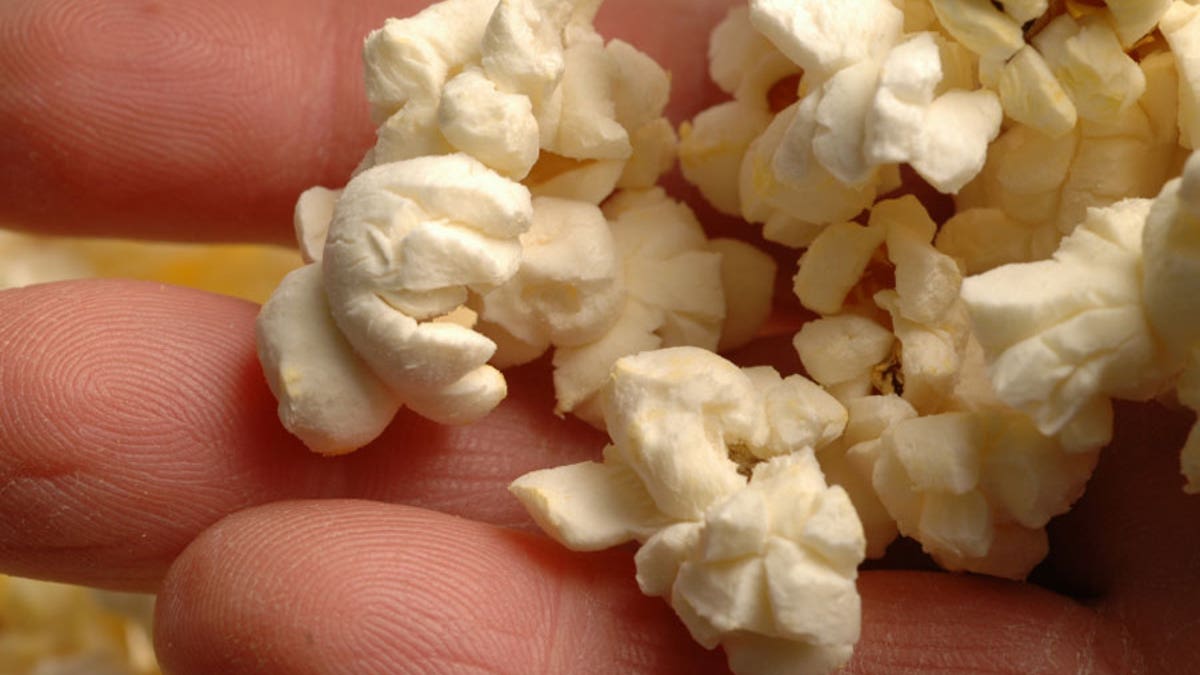
(iStock)
Long heralded as a low-calorie snack, new research indicates popcorn may actually be good for your health in other ways as well.
Pennsylvania researchers reported popcorn actually contains more healthy antioxidants called polyphenols than fruits and vegetables. The study found that there were 300 mg of polyphenols in a serving of popcorn, compared to 160 mg in a serving of fruit.
Polyphenols have been shown in prior studies to boost cardiovascular health as well as protect against chronic diseases.
Because popcorn is only 4 percent water – compared to the 90 percent water that makes up many fruits and vegetables – the concentration of polyphenols is much higher in the snack food because it is not as diluted.
The hulls of the popcorn, or the part that tends to get stuck in people’s teeth, has the highest concentration of polyphenols and is a good source of fiber as well.
"Those hulls deserve more respect," lead researcher Joe Vinson, from the University of Scranton in Pennsylvania, said in a press release. "They are nutritional gold nuggets."
Vinson, who also has analyzed the healthful components of chocolate, nuts and other common foods in the past, called popcorn “the perfect snack food.”
“It's the only snack that is 100 percent unprocessed whole grain,” he said. “All other grains are processed and diluted with other ingredients...One serving of popcorn will provide more than 70 percent of the daily intake of whole grain. The average person only gets about half a serving of whole grains a day, and popcorn could fill that gap in a very pleasant way."
However, Vinson warned that it is very easy to turn this healthy snack into an unhealthy one. Air-popped popcorn is much lower than calories than microwave popcorn – although slathering on butter, oil and other ingredients can cause the calorie and fat content to rise exponentially.
Also, Vinson added that popcorn cannot replace fruits and vegetables in a healthy diet because fruits and vegetables contain essential vitamins and other nutrients that popcorn lacks.








































